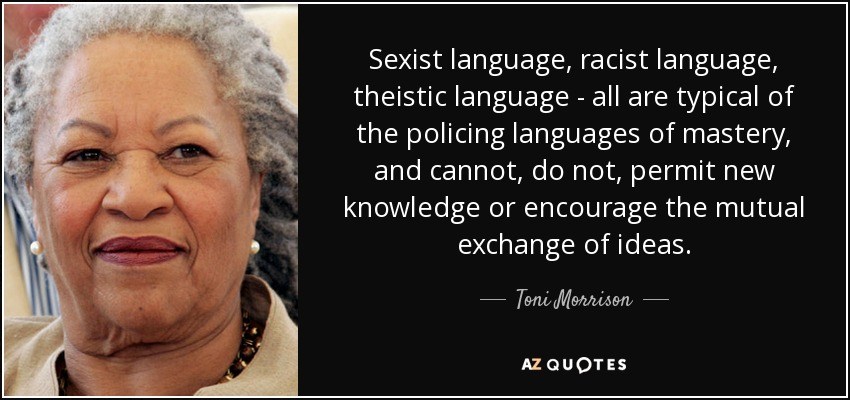So I was watching The Apprentice the other night, as you do, and one thing irked me enormously. It was the moment when Lord Sugar heckled poor ol’ James with the phrase, “Man up, son. You’ve got to man up.”
I practically squirmed in my seat. And how Karen Brady didn’t wallop him in one is not something I can understand. Even accepting that Grey’s Anatomy quite possibly has more to do with medicine than The Apprentice has to do with actual business, I still expect a little more than this sort of harmful language from a Lord, no less. Now, I know a number of you are probably shaking your head and muttering words along the lines of oversensitive or bloody feminist. But, hear me out because I believe I have a pretty compelling point.
What Lord Sugar was saying, and saying quite explicitly, is that courage and conviction are intrinsically male characteristics – which, for obvious reasons, pissed me off. Maybe it’s because I’m a writer and I take words seriously, but phrases like this seem to be part of an antiquated vernacular that should be dead and buried. Alongside words such as “feisty,” “bossy,” “a ball-buster,” and “abrasive,” frankly the list goes on and on. Basically, the core problem is that when men are described as strong, it’s only ever in the most glowing terms. No one ever called Prince Arthur shrill or King David a bit of a hussy (read the story – the man had a weakness), but when it comes to powerful women they are often derided with this sort of harmful vocabulary. And it seriously needs to stop because our words without question have impact. Trust me – I am paid a fair amount to use them correctly, so I know this to be true. So continuing to perpetuate these stereotypes through this sort of language is extremely damaging.
And I speak from personal experience. I went to a mixed school and remember not wanting to be seen as too ambitious, too clever or too opinionated because then I would be bolshy, intense and, God forbid, shrill. And, frankly, all 15-year-old me wanted was to fit in and be accepted. So I bit my tongue and lowered my head. Essentially, I made myself less and by doing so allowed my male counterparts to shine brighter. It took years to get over this, to appreciate that by attempting to be a delicate wallflower and mimicking the heroines of the fairy tales I read (who were “saved” by men) I was being the opposite of my real character. By nature I am loud, vibrant and dynamic – characteristics that at the age of 22 helped me start my own business, so I am relatively happy I was able to accept myself.
And it’s not just me. There is little question that girls do better at single sex schools. I would argue away from the pressures of having to conform to an archaic vision of women. So I think it’s about time we changed the way we spoke about us women – dumping the cruel and derogatory terms in favour of words that celebrate our strength…
Because I really do guarantee your words have meaning and impact. Just ask 15-year-old me.
If you would like to discuss any more of my pseudo-feminist philosophy or, more likely, discuss content marketing feel free to drop me an email on Helena@helenabaker.com or give me a ring on 0208 629 6465.

